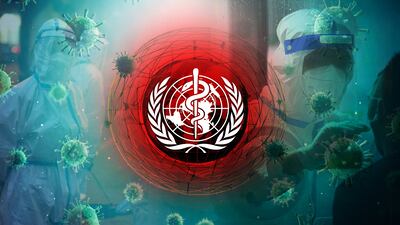Saturday will mark five years since the public health authorities in Wuhan, China, announced the first death from Covid-19. The pandemic swept around the world like a tidal wave, causing millions of deaths and devastating economies everywhere. It is not far-fetched to think that another pandemic is around the corner. It probably won’t be human metapneumovirus – HMPV – a highly infectious respiratory disease currently circulating in China. That’s because HMPV is a common virus and many people already have some natural immunity.
But there are many existing threats that could become the next pandemic. The influenza H5N1, or bird flu, outbreak in US dairy cows is still confined mostly to cattle and farm workers but it is only a mutation or two away from becoming highly transmissible from human to human. Then there is mpox, which is raging in the Democratic Republic of the Congo. This caused a major, international epidemic in 2022, including in Europe and North America. The mpox strain currently circulating is much more lethal than the old strain, and it has killed hundreds of children. The next pandemic could also be what the World Health Organisation calls Disease X, a currently unknown infection that could resemble Ebola, Sars or Zika.
Let’s begin with all that we got wrong with Covid-19. China didn’t report accurately on the initial Wuhan outbreak, and the WHO was not granted entry for an independent investigation into the origins of SARS-CoV-2. No country was well prepared for the pandemic. Even the highest performing health systems in the US and the UK seemed to fail miserably. Health systems were stretched and there were acute shortages of personal protective equipment, vaccines and treatments. Most of all, we witnessed shocking inequities in access to life-saving medical tools. Rich countries hoarded vaccines while poorer countries suffered and waited for charitable contributions. Vaccine donations came too little and too late.
Those failures sparked a global effort to negotiate a WHO pandemic treaty and reforms of the International Health Regulations. Both negotiations were due to be completed before last May’s World Health Assembly in Geneva. The IHR got over the finish line on the very last day, June 1. But pandemic treaty negotiations imploded. The Assembly extended the mandate for negotiations until May this year but even today the Geneva talks are stalling, with bitter disagreements between the Global North and South. US president-elect Donald Trump may torpedo the negotiations in Geneva or even withdraw entirely from the WHO. Washington is the WHO’s largest state funder; a loss of American support could hollow out the organisation. That would be cataclysmic because the world desperately needs a strong and resilient WHO.
Why is the pandemic treaty important? It would make us healthier and safer by requiring the real-time exchange of scientific information needed for early alert and response, and for developing medical countermeasures like vaccines. It would also provide a mechanism for equitable and affordable access to vaccines and treatments for all people, wherever they live. And the treaty would adopt a “one health” strategy to prevent spillovers from animal to human populations. That means we might just prevent the next pandemic. At the very least, it would make the world much more prepared to quell its spread and provide health care to those who are infected.
So, how can we succeed in bringing out a robust pandemic treaty, even as the world is descending into nationalist populism? To put it simply, we need a grand social bargain for a fairer and safer world. What would that look like? The Global North wants the rapid exchange of scientific information, which is crucial for early warning, rapid response, monitoring mutations in the virus as well as developing vaccines, therapeutics and other medical countermeasures. This includes surveillance data, pathogen samples and genomic sequencing data. Without real-time access to information, the WHO, governments, pharmaceutical companies and scientists cannot conduct research and develop effective vaccines and treatments.
The Global South wants equity. That means a verifiable mechanism for early and affordable access to the fruits of scientific research. One important mechanism is a so-called Pathogen Access and Benefit Sharing system. All parties would agree to share pathogen samples and digital sequencing data in exchange for fair and affordable access to medical products.
The truth is we need both – scientific exchange and equity. We can do both, and we must.
We also need a robust One Health approach that helps prevent spillovers from animals to humans. Almost 75 per cent of all novel viruses have a zoonotic – animal – origin. The key is to stop novel viruses from being transmitted to humans in the first place, a core prevention approach. How do we do this? Well, it means focusing on “deep” prevention, such as climate change, deforestation and separating animal and human populations. It also may mean the end of factory farming and live wet markets, such as the Huanan Seafood Wholesale Market that likely caused the Wuhan Covid-19 outbreak. Banning or regulating the sale and trade of live animals is also needed.
With a new US administration about to take office, the future of international diplomacy and global solidarity may be at risk. But a strong WHO and a pandemic treaty is a win-win for the US, the WHO and global health security. We urgently need international co-operation and legal rules to fortify our defences against the next pandemic.
We don’t know what novel pathogen will cause a worldwide pandemic, whether an influenza virus, a coronavirus, an Ebola virus, or Disease X. But we do know that the next pandemic is coming and it could be right around the corner. This time let’s have strong and resilient health systems, accurate and rapid reporting, scientific exchange and equity. The Covid-19 pandemic taught us that no nation acting alone can stop a fast-moving, lethal virus. We need international co-operation and global solidarity.
We all inhabit one planet and have a common stake in preventing the next huge public health crisis.







